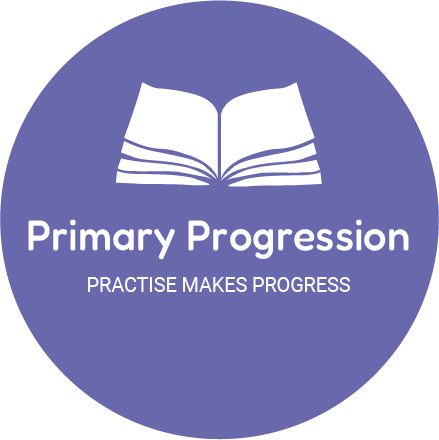KS2Key Stage Two



EducationWhat Should KS2 Children Be Taught?
KS2 follows after KS1 and is subject-specific lesson based. Children will also improve and develop skills that will assist them in their secondary school. The Department for Education (DfE) produce a curriculum of subjects that are compulsory to cover in KS2. The DfE states:
“The national curriculum provides pupils with an introduction to the essential knowledge that they need to be educated citizens. It introduces pupils to the best that has been thought and said; and helps engender an appreciation of human creativity and achievement…The national curriculum provides an outline of core knowledge around which teachers can develop exciting and stimulating lessons to promote the development of pupils’ knowledge, understanding and skills as part of the wider school curriculum.”
For KS2, the DfE state that the following national curriculum subjects are compulsory: English, Maths, Science, Computing, PE, History, Geography, Languages, Art, Design and Technology and Music.
The KS2 Curriculum: Core SubjectsKS2 English
English/Literacy is a core subject in the national curriculum. The DfE states: “A high-quality education in English will teach pupils to speak and write fluently so that they can communicate their ideas and emotions to others and through their reading and listening, others can communicate with them. Through reading in particular, pupils have a chance to develop culturally, emotionally, intellectually, socially and spiritually.”
English is split into two main areas in KS2: reading and writing. The curriculum is further differentiated by Lower Key Stage 2 (LKS2) and Upper Key Stage 2 (UKS2). LKS2 consists of years 3 and 4, and UKS2 consists of years 5 and 6.

LKS2
Reading: Children in LKS2 should read books that are specifically suitable for their age level. If comfortable they can challenge themselves with more advanced texts. Parents/carers and teachers should assist LKS2 children to advance their vocabulary when they are reading for pleasure. Children should also be encouraged to read a range of texts: fiction, non-fiction, poetry.
Writing: Children in LKS2 should have legible handwriting that is joined-up and they should have good spelling accuracy for their age. With their spelling knowledge, LKS2 children can apply their vocabulary to their writing. Children should also have a clear understanding of writing structural elements such as word class, sentences and paragraphs.
UKS2
Reading: Children in UKS2 should read books fluently and with intonation that are suitable for their age level and they then should challenge themselves with more advanced texts. Children should also be encouraged to read a range of texts: fiction, non-fiction, poetry. UKS2 children should be able to decode new or unfamiliar word with minimal/no parents/carers or teacher support.
Writing: Children in UKS2 should have cursive, legible handwriting with good spelling accuracy for their age. UKS2 children will be able to write at speed, at length and with accuracy. With their spelling knowledge, UKS2 children will apply their vocabulary to their writing. Children should also have a clear understanding of writing structural elements such as word class, sentences and paragraphs. Finally, UKS2 children will be able to adapt their style of writing depending on the audience, context and purpose of writing. All of these elements of writing are essential to support them prepare for secondary school.


The KS2 Curriculum: Core SubjectsKS2 Maths
Maths is a core subject in the national curriculum. The DfE states: ” A high-quality mathematics education provides a foundation for understanding the world, the ability to reason mathematically, an appreciation of the beauty and power of mathematics, and a sense of enjoyment and curiosity about the subject.”
Maths is split into two main sections: fluency and reasoning/problem solving. The Maths curriculum is then differentiated by Lower Key Stage 2 (LKS2) and Upper Key Stage 2 (UKS2). LKS2 consists of years 3 and 4, and UKS2 consists of years 5 and 6.
LKS2
Fluency: LSK2 children should have the foundations of the four operations (addition, subtraction, multiplication and division), number facts and place value. They should be confident working with numbers up to 1000 and challenge themselves to move beyond this. By the end of LKS2 the children are expected to know their times tables up to x12 and will be tested on this in the Year 4 Multiplication Tests. In addition to this, LKS2 children should be able to understand measurements, use the relevant equipment and use mathematical vocabulary confidently (spelling this accurately).
Reasoning/problem solving: LSK2 children will become confident with completing some reasoning/problem solving problems. These are word problems which require logical and critical thinking in order to use the correct strategy to calculate the answer. Children will start with single step problems before challenging themselves with two-step problems.
UKS2
Fluency: USK2 children should be secure in the foundations of the four operations (addition, subtraction, multiplication and division), number facts and place value which they developed in LKS2. They should be confident working with numbers up to 10 000 000 and could challenge themselves to move beyond this. By the end of UKS2 the children are expected to be confident with their times table knowledge and apply this to short and long multiplication and division. In addition to this, UKS2 children should be comfortable working with measurements, using the relevant equipment and use mathematical vocabulary confidently (spelling this accurately).
Reasoning/problem solving: USK2 children will be confident with completing reasoning/problem solving problems. These are word problems which require logical and critical thinking in order to use the correct strategy to calculate the answer. Children will develop their single and two-step problem skills further and be able to complete multi-step reasoning/problem solving questions.

The KS2 Curriculum: Core SubjectsKS2 Science
Science is a core subject in the national curriculum. The DfE states: “A high-quality Science education provides the foundations for understanding the world through the specific disciplines of biology, chemistry and physics. Science has changed our lives and is vital to the world’s future prosperity, and all pupils should be taught essential aspects of the knowledge, methods, processes and uses of Science.”
The DfE aims of teaching Science are:

- Pupils will develop their scientific knowledge and understanding of biology, chemistry and physics.
- Pupils will develop their understanding of nature, different processes and methods. They will do this through questioning and enquiries, which will aid them in answering scientific questions.
- Pupils will have the scientific knowledge needed to understand Science today and in the future.
In KS2 children will also focus on working scientifically skills, conducting investigations and improving their questioning skills.
In KS2, pupils will focus upon the following areas of Science:
- Materials and their properties
- Animals (including humans)
- Forces and magnets
- Rocks
- Earth and Space
- Physical processes such as electricity, sound and light

The KS2 CurriculumKS2 Assessments
Each key stage has a set of assessments in primary school. In KS2, children will complete the Multiplication Tables Check in Year 4, and they will complete assessments knowns as SATs (Standard Assessment Tests) at the end of Year 6. SATs in KS2 consist of Maths and English test papers where the children will be tested on the KS2 curriculum. The DfE expects children to be at the expected standard/at age related expectations for their age by the end of KS2.
Year 4 Assessment: Multiplication Tables Check
The DfE states that “the purpose of the [Multiplication Tables Check] is to determine whether pupils can recall their times tables fluently, which is essential for future success in mathematics. It will help schools to identify pupils who have not yet mastered their times tables, so that additional support can be provided”.
KS2 SATs: English
The English SATs are split into three separate papers: the reading paper (1 hour), the spelling paper (approx. 15 minutes) and the spelling, punctuation and grammar (SPaG) paper (45 minutes).
The reading paper tests KS2 children on their comprehension skills and their ability to work with the eight content domains. The content domains are; explain the meaning of words; retrieve and record information; summarise the main ideas from the text; make inferences; make predictions; explain how elements contribute to meaning as a whole; explaining an author’s choice of words; and making comparisons within the text. The reading paper will include a booklet containing extracts from fiction, non-fiction or poetry texts. Children will be provided with comprehension questions to answer once they have read the texts.
The spelling paper tests children on their understanding of spelling patterns and rules.
The spelling, punctuation and grammar paper tests KS2 children on their understanding of grammatical features. This test usually includes questions on; word classes; functions of sentences; combining words, phrases and clauses; verb forms, tense and consistency; punctuation; standard English and formality; and vocabulary.
KS2 SATs: Maths
The Maths SATs are split into three separate papers: the arithmetic paper and two reasoning papers.
The arithmetic paper tests KS2 children on their ability to solve mental maths problems and solve fluency calculations based on: addition, subtraction, multiplication, division, fractions, decimals and percentages.
The reasoning paper tests KS2 children on their ability to apply their mathematical knowledge and understanding to real-life scenarios. Reasoning test questions are word problems (that may have multiple steps to solve them) based on the eight strands of Maths. The eight strands of Maths are; addition, subtraction, multiplication and division (calculations); fractions, decimals and percentages; ratio and proportion; algebra; measurement; geometry – properties of shapes; geometry – position and direction; and statistics.


